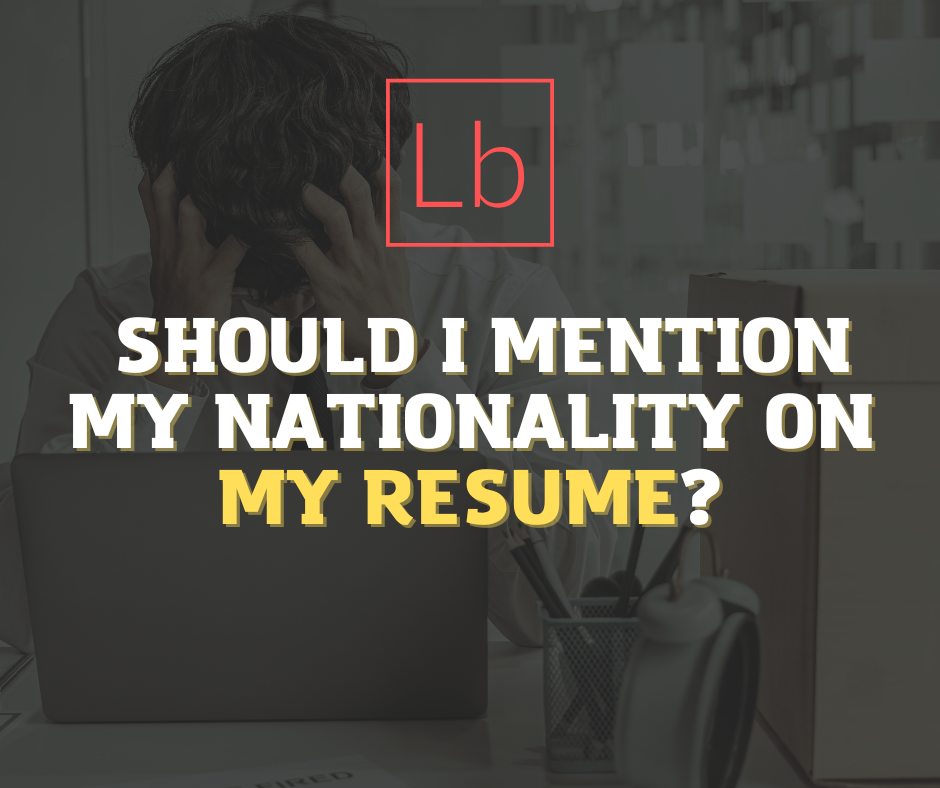
Content:
Although this seems like a simple question with an equally simple solution, in some cases it can be a dilemma. Very briefly: do as you see fit, but it’s advisable not to write about it. No one but you’ll decide how good this decision will be, or vice versa, bad, and the resume should contain only that information about you that will characterize you as an employee, and any citizenship doesn’t affect your eligibility for employment.
However, it can be assumed that this greatly depends on the type of work and the place where you send your resume. If you need to send an application for a job in your home country, it would be redundant to list your nationality on your resume, simply because it is relatively obvious. If you are a citizen of a certain country and send your resume to an employer from that country, your nationality will not play a special role in the decision of the employer and you still must be eligible for any jobs, unless a boss of workplace is a misanthrope in relation to people not of his nationality. Fortunately, such people are extremely rare in leadership positions, since the worldview of these persons will never allow them to be such a good worker as to achieve a leadership position.
If you’re sending your resume to an employer located in another country, then indicating your nationality while applying will not be as unacceptable as in the first case, but still optional. Your nationality does not affect your qualities as a person, and therefore an adequate employer should be all the same where you are from and who your parents are. If necessary, just indicate where you are from, as in the case of foreign employment, this will be important for paperwork. But it still doesn't have to be on your resume.

Unfortunately this can happen. Each employer is individual and also has his own preferences and what he avoids. If he had unpleasant events associated with people of the same nationality as you, or even name, the employer will simply therefore prefer that person to whom he’ll not feel rejection and hostility. It’s not always that hostility towards a representative of a certain people is an indicator of unacceptable views, but it is still quite unpleasant, and now they are trying to get rid of this. Unfortunately, human nature is inherent in people, and this cannot be completely avoided. If you are afraid of this, then you can not indicate the nationality in the resume, but clarify this issue if possible, when you can contact the employer directly.
In general, yes, but nationality is extremely far from this list, since it really does not affect the quality of the work performed, and in general for each person as an employee. Number of really valid reasons for refusing employment is quite small and may include:
unsuitable education - it’s obvious that if you studied as an electrician, you cannot work as an accountant without proper education;
insufficient work experience - some employers only want skilled workers who know what to do at work and how to do it the best way possible;
lack of the necessary profession and qualifications - if you have never worked in the field and in the job that you would like to have, and have no idea at all about what you have to do, do not be surprised that you will be denied employment, and it will be absolutely legally;
medical contraindications - some diseases or deficiencies in health can be critical for some professions. For example, how can a person with hand tremors work as a surgeon? That's right, he can't, because it would be dangerous for the patient's life. Not all professions require an ideal state of health, but if they do, then they must be met;
lack of critical skills - if you have an education as an economist, for example, and want to work in a country other than your own, but do not know the language of that country or English, this is a good reason to refuse employment;
the presence of a more suitable person in terms of working qualities for your position. There is nothing particularly illegal in choosing an employee who can do more and better than his competitors.
As you can see, they can legally refuse employment only for those reasons that really strongly affect the effectiveness of a person as an employee in the chosen field, and it is these reasons, or some related ones, that can be decisive. The remaining reasons will most likely be related to the personal attitude towards people of your nationality of the person who will view your resume or conduct an interview with you, and it is not a fact that that person will be able to legally refuse you employment.
Are you interested in working in a place where you are not welcome and against your employment? I don't think it's a really good idea, and if you're being turned down for a job for reasons not listed above, it's easier and better for you to find a job that makes you happy, and with adequate employers. If you’re rejected for the above reasons, don’t expect to be accepted for the same job but in a different place. It is recommended to look for a job taking into account your knowledge, skills and opportunities that relate to the job. This will help you avoid such situations and find a suitable job faster.
In general, it’s impossible to indicate as reasons for refusal everything that was not mentioned above, since everything else doesn’t affect the performance and quality of a person’s work. You cannot be denied a job because of pregnancy (current or potential in the future), because you have children, because of your gender, nationality and religion. But in some Arab countries and Asia the question of religion and gender is more strict than in the countries of Europe and America and even somehow can be controlled by laws. Also, in some countries it’s generally forbidden to indicate requirements in vacancies that discriminate against anyone. If you believe that you were unlawfully denied a job, you have every right to sue your employer for violating your rights, and if you win the case, the employer will be obliged to hire you, or pay a fine or compensation.
Login or register to leave comments.